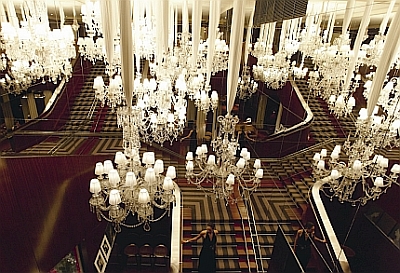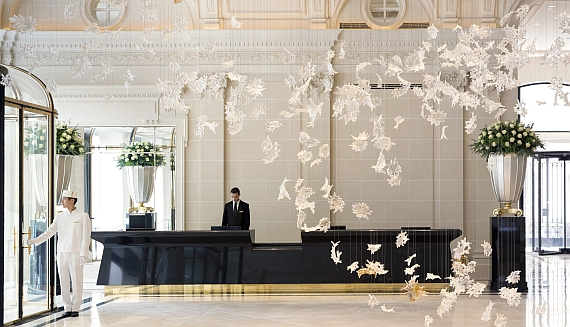
News & Stories
Rome. After months of debates, the Italian Parliament has finally approved the culture and tourism decree. Following the reading of the decree in both Houses, the new law confirms the fiscal concessions included in the decree's first draft that are devoted to donations to art infrastructures and activities, as well as to investments in the tourism industry.
Vienna. The new high point in the battle for the Viennese hotel guest is already on the cards with the opening of Vienna's new Central Station and its 4,000 additional hotel beds. Already, the price slump can be felt, yet the increasing capacities at Vienna West may not result in happier guests and instead the station may face the prospect of empty beds. In Vienna, the new Central Station and Vienna West will compete for guests. And once again the discussion as to how many hotels the city can bear is hotting up. Prices have already fallen through the floor and efforts to raise them are failing in every category. Viennese hoteliers are nervous.
Paris. Sometimes journalists cannot avoid smiling when hoteliers talk about competition. Playing it "politically correct", they talk about how much they love competition, how great it is for business, how stimulating it is for the teams. They all know very well that more competition means more efforts to maintain your customer loyalty at a high level, higher investments to keep the property up-to-date, more brainstorming and marketing strategies to remain different and more guests to remain profitable… So, what is going to happen in Paris in the near future? Competition in the luxury hospitality segment is definitely heating up. The segment represents 1.7% of the total inventory.
Paris. Today, Asian Peninsula Hotels make its grand debut in Europe with the opening of The Peninsula Paris. The combination of an iconic building restored for hundreds of million euros by Qatari owners and a worldwide respected luxury operator promise a new standard in design, comfort, service and spirit. The new Peninsula Paris will apply for the "Palace" status in Paris after two years of operations. Today, almost 530 and later 600 employees start taking care of the guests of the 200-room hotel in the elegant "16th arrondissement", just steps away from the Arc de Triomphe and the famous Avenue des Champs Elysées. Sarah Douag had an intense discussion with General Manager Nicolas Béliard about what distinguishes The Peninsula Paris from its competitors in luxury Paris.
San Francisco. Airbnb announced this week that it will begin to support business travelers through a partnership with Concur, a leading provider of spend management solutions and services in the world.
Dehli. The new Indian government has avowed itself to "zero tolerance" after the public and deadly rapes of women in India. Such occurrences endanger tourism as well, and tourism has to be promoted by all means as a growth engine. However, despite the terrible incidents, the current tourism figures remain stable.
Granada. Figures show: The halal tourism is growing. To look at how the industry can capitalize on one of the fastest growing sectors in the world, Europe is hosting the first-ever international conference on halal tourism. Experts say, Germany is one of the main targets for Muslim tourists in Europe.
Hanover/London. TUI AG and tour operator TUI Travel Plc intend to merge to become the world’s leading tourism group. The synergies created will result in annual cost savings of EUR 45 million and an acceleration of growth. The company is to be headquartered in Germany.
Florence. Italy has a new national convention and MICE bureau. Founded in Florence a few days ago, the new organization is a privately held network composed of travel, hospitality and congress companies.
Frankfurt/M. Day trips are revving up the city tourism in Germany. Three billion have been attributed to the Germans – eight times as many as the overnight stays in commercial accommodations.




